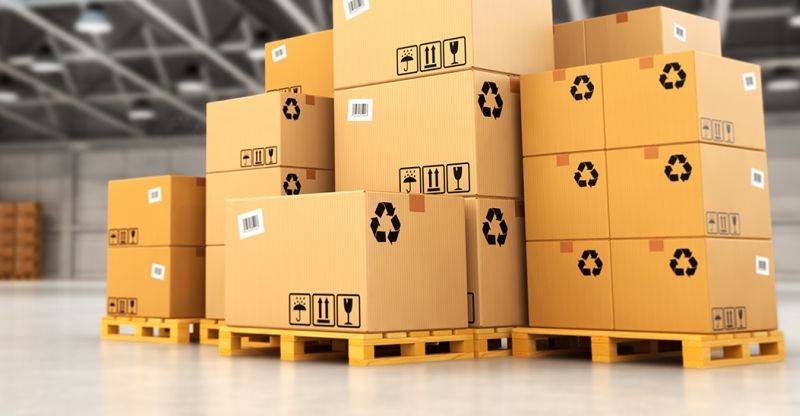Learning how to buy goods from China to Nigeria is an essential skill for entrepreneurs and business owners who want to tap into the lucrative trade between these two countries.
The process involves researching products, finding reliable suppliers, negotiating prices, arranging shipping, and handling customs clearance.
This comprehensive guide will walk you through each step, providing tips, resources, and best practices to ensure a successful transaction.
1. Identifying Desirable Products
The first step in learning how to buy goods from China to Nigeria is to determine which products are in high demand and have a good profit margin.
Start by researching the Nigerian market to identify popular items that meet the needs of local consumers.
A. Essential Goods
Focus on products that cater to basic needs, as these typically have a steady demand. Some examples include:
- Electronics and gadgets
- Fashion accessories
- Home and office appliances
- Automobile parts
B. Trending Items
Keep an eye on local and global trends to identify products that are currently popular or have the potential to become popular in Nigeria. Examples include:
- Natural soaps and personal care items
- Makeup and beauty products
- Wigs and hair accessories
- Solar energy products
C. Niche Markets
Identify niche markets in Nigeria that might be underserved or have a particular interest in specific products from China. Examples include:
- Building materials and construction hardware
- Textiles and clothing
- Health and wellness products
- Agricultural equipment and supplies
2. Locating Trustworthy Chinese Suppliers
Once you have an idea of the products you want to import, the next step is to find reliable Chinese suppliers.
There are several methods to locate reputable manufacturers and wholesalers:
A. Online Marketplaces
You can browse popular Chinese e-commerce platforms, such as Alibaba and AliExpress, to find suppliers for your chosen products.
These sites offer a wide range of products and often provide buyer protection mechanisms to reduce the risk of scams.
B. Trade Shows and Expos
Attend international trade shows and expos to meet potential Chinese suppliers in person. This allows you to ask questions, negotiate prices, and assess product quality directly.
C. Sourcing Agents
Consider hiring a sourcing agent or company to help you find suppliers in China. These professionals have experience and connections in the Chinese market, allowing them to locate and vet suppliers on your behalf.
3. Negotiating with Suppliers
When you have identified potential suppliers, it’s time to start negotiating prices and terms. Key factors to discuss include:
- Product pricing
- Minimum order quantities
- Payment terms
- Shipping and delivery times
- Product samples and quality control
4. Placing an Order
Once you have reached an agreement with a supplier, you can place your order. This can often be done directly through the supplier’s website or through the online marketplace where you found them. Be sure to confirm all details, including product specifications, quantities, and shipping information before finalizing your purchase.
5. Paying for Your Goods
After placing your order, you will need to arrange payment. There are several methods available for making international payments, including:
- Telegraphic Transfer (TT)
- Western Union
- PayPal
- Alipay
- Escrow Services
- Letter of Credit (LC)
Choose a payment method that offers a balance of convenience, security, and affordability. Consider using escrow services or other secure payment options to minimize the risk of fraud.
6. Arranging Shipping
To bring your goods from China to Nigeria, you will need to arrange shipping. There are two primary methods:
A. Sea Freight
Sea freight is typically the most cost-effective option for shipping large quantities of goods. However, it can take several weeks for your items to arrive.
B. Air Freight
Air freight offers faster delivery times but is generally more expensive, especially for large shipments. This option may be suitable for smaller orders or time-sensitive products.
7. Handling Customs and Import Duties
When importing goods from China to Nigeria, you will need to deal with customs clearance and import duties. Familiarize yourself with Nigerian customs regulations and required documentation, such as:
- Bill of Lading
- Commercial Invoice
- Packing List
- Certificate of Origin
- Product-specific certifications (e.g., SONCAP for certain products)
You may also need to work with a local customs broker or agent to help navigate the customs process and ensure your goods are cleared for entry into Nigeria.
8. Managing Local Logistics
Once your goods have arrived in Nigeria, you will need to arrange for local transportation and warehousing.
Work with local freight forwarders, trucking companies, and storage facilities to ensure your products are safely and efficiently moved to their final destination.
9. Selling Your Imported Goods
Now that your goods have arrived in Nigeria, it’s time to start selling! Develop a marketing strategy to promote your products, create sales channels (e.g., online stores, physical retail outlets), and build relationships with local distributors and retailers to maximize your reach and revenue.
10. Building Long-Term Relationships
As you grow your import business, focus on building long-term relationships with your Chinese suppliers and Nigerian customers.
Maintain open communication, address any issues promptly, and continually seek opportunities to improve your product offerings and service levels.
Conclusion
By following these steps and best practices, you can successfully learn how to buy goods from China to Nigeria and create a thriving import business.
With dedication, research, and the right partnerships, you can tap into the strong trade potential between these two countries and achieve lasting success.










